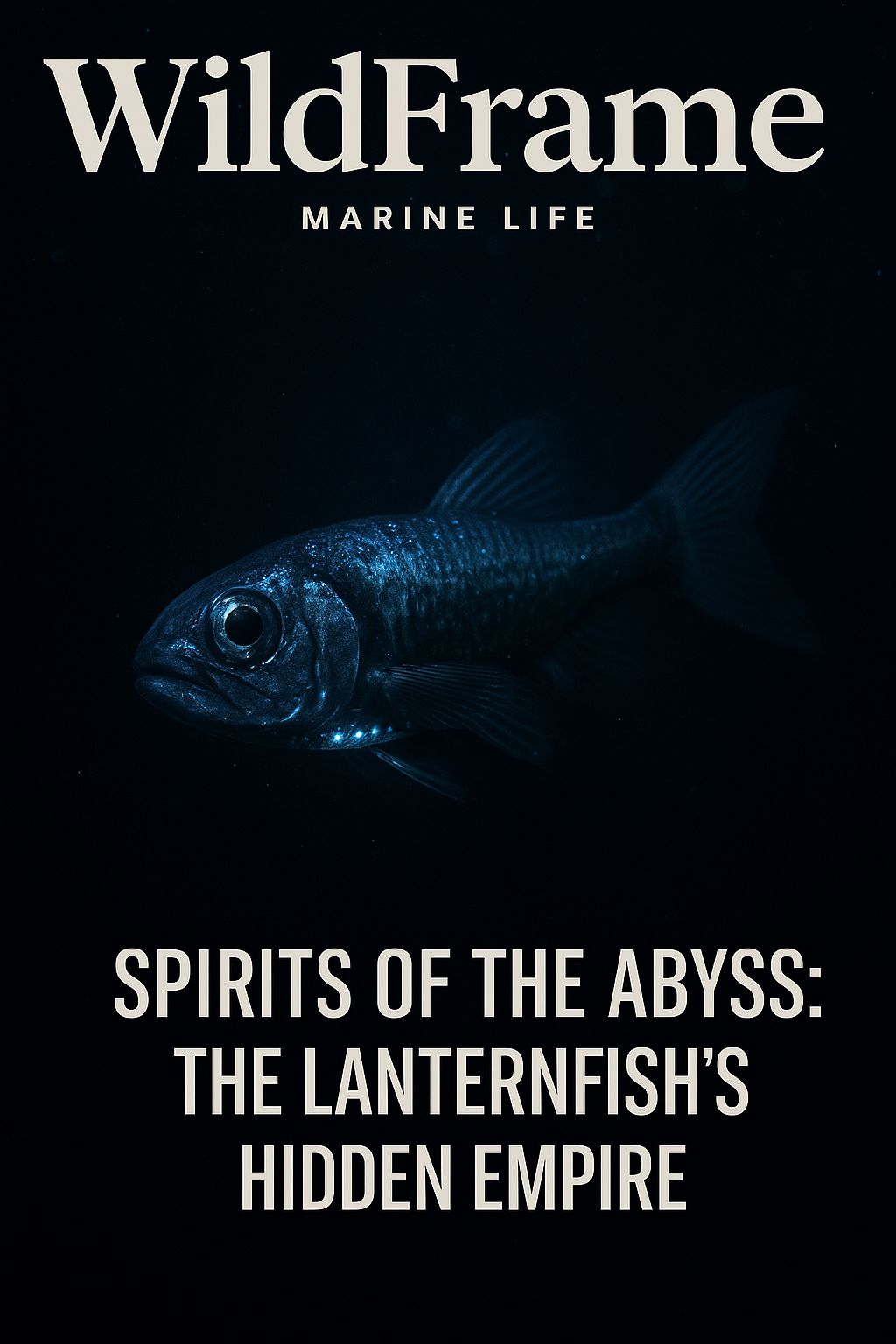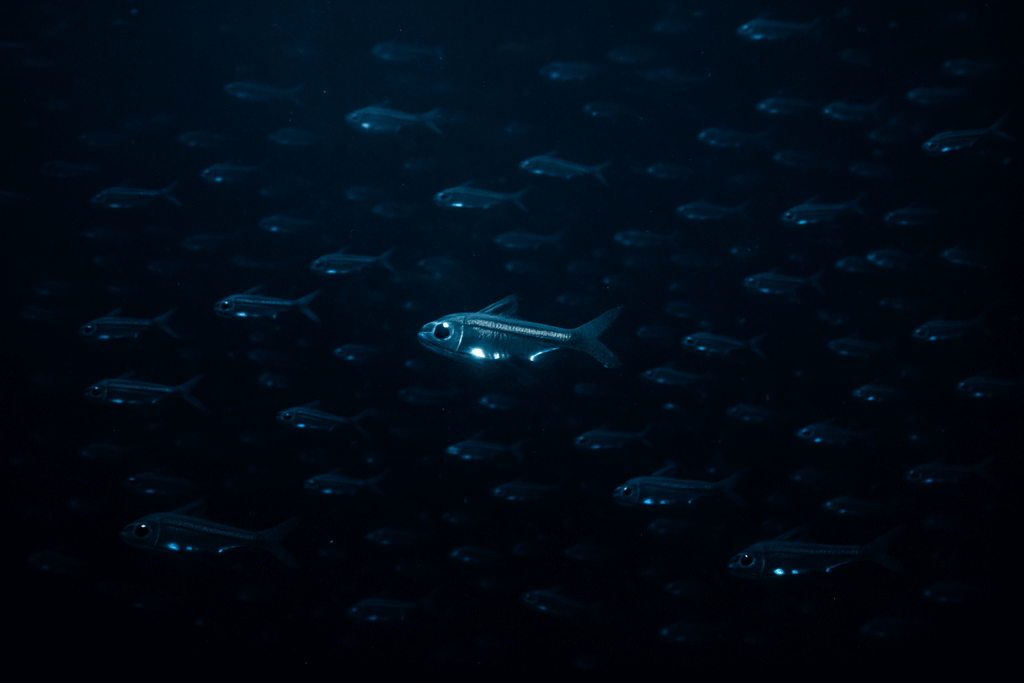In the vast theater of Earth’s oceans, where sunlight surrenders to infinite shadow, lies a kingdom few humans have ever truly grasped. It is ruled not by whales, sharks, or rays, but by something smaller, stranger, and arguably more influential: the lanternfish. This diminutive, glowing creature may not dominate headlines, yet it commands the very heartbeat of the deep.

The Silent Majority of the Sea
By sheer biomass, lanternfish are among the most abundant vertebrates on Earth. Schools numbering in the billions move in choreographed waves across the midnight zone. By day, they linger in depths where darkness reigns. By night, they ascend in one of the planet’s greatest migrations—rising to surface waters to feed. Every evening, this mass movement reshuffles ocean ecosystems, a ritual that connects the abyss to the light.
A Body Built for Night
Their namesake is their gift: bioluminescence. Along their flanks and bellies, delicate photophores flicker like constellations inverted into flesh. These lights are not decoration but survival tools—camouflage to erase shadows from predators lurking below, and signals to others of their kind in a world without sun. To encounter them en masse is to witness a living galaxy adrift in liquid black.
Architects of Balance
Predators of plankton and prey to squid, whales, and countless fish, lanternfish anchor a web of life that sustains both the deep and the shallows. Without them, many ocean giants would lose their lifeline. Their nightly migration even drives the carbon cycle, pulling surface nutrients into the depths in a planetary rhythm older than civilization itself.
Myths Written in Light
For sailors of antiquity, glimpses of shimmering waters stirred legends of underwater cities and spirits that sang with light. Today, science unmasks the truth, yet the myth endures: that somewhere below, the sea carries its own stars, glowing silently in eternal procession.

Fragility in the Dark
But even lanternfish are not immune to human reach. Increasing deep-sea fishing, sonar interference, and climate shifts threaten to disrupt their vast, unseen empire. Their disappearance would not only unravel the balance of ocean food chains—it would dim the very pulse of Earth’s largest ecosystem.
Eternal Shadows, Eternal Stars
The lanternfish is not a leviathan, nor a predator to fear. It is a messenger of the unseen, proof that power does not always roar. Sometimes it glimmers quietly, in places few will ever see, yet it shapes the destiny of seas and skies alike. To speak of the ocean without lanternfish is to tell a story with its heart missing.

In the abyss, stars still burn—not above us, but below.


Reply